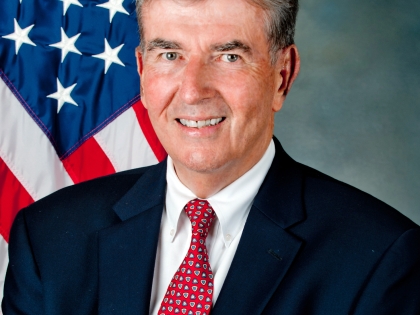
Senator Breslin Promotes Blood Pressure And Cholesterol Screening During Heart Health Month
Month-long awareness campaign focuses on threat of heart disease in women
To coincide with February’s American Heart Month, State Senator Neil D. Breslin (D-Albany) today encouraged New Yorkers, and women in particular, to get their blood pressure and cholesterol levels checked.
"The truth about heart disease is that one in four American women dies of the deadly disease and many fail to make the connection between their risk factors – such as high blood pressure and high cholesterol – and their own chance of developing it," Senator Breslin said.
The chance of developing heart disease can be reduced by taking steps to prevent and control factors that put people at greater risk, he said. "Recognizing risks, making healthy lifestyle choices and getting timely care can literally save a woman’s life."
According to the American Heart Association, some heart attacks are sudden and intense– like those seen in movies. But others start slowly, with only mild pain or discomfort. Often people affected aren’t sure what’s wrong and wait too long before getting help. Signs that a heart attack is happening may include:
Chest discomfort
Most heart attacks involve discomfort in the center of the chest that lasts more than a few minutes, or that goes away and comes back. It can feel like uncomfortable pressure, squeezing, fullness or pain.
Discomfort in other areas of the upper body
Symptoms can include pain or discomfort in one or both arms, neck, jaw or stomach.
Shortness of breath with or without chest discomfort.
Other signs include sweating, gas-like pain, nausea, vomiting and dizziness.
Senator Breslin noted that half of heart attack victims wait more than two hours before seeking help. "Experts say that when a heart attack occurs, there is a limited amount of time before serious damage begins. Anyone who thinks they are having a heart attack should seek medical attention immediately. Calling 9-1-1 is usually the fastest way to get lifesaving treatment."
The Albany lawmaker also observed that heart disease disproportionately affects women of color. African-American and Hispanic women in particular have high rates of the major risk factors for heart disease, including obesity, high blood pressure and diabetes.
For more information about heart health, and for tips on adopting healthy lifestyle habits, visit the American Heart Association website at www.americanheart.org.
"Many women think that cancer is more of a threat than heart disease, but they’re wrong," Senator Breslin concluded. "Studies show that nearly twice as many women in the US die of cardiovascular diseases as from all forms of cancer combined. It’s never too late to control the risk factors for this oftentimes silent killer. Talk to your doctor, find out your personal risk and take action to lower it."
